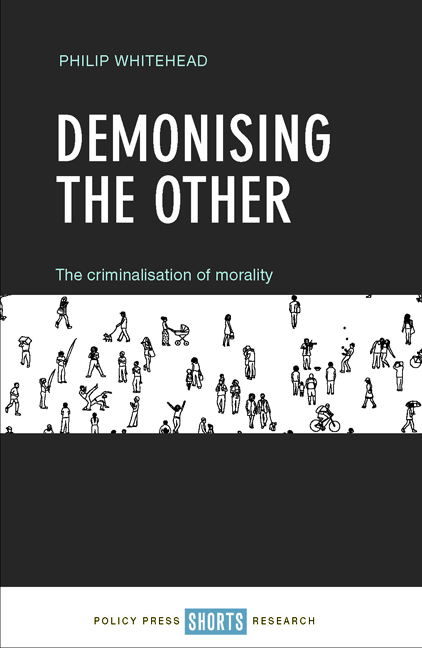Book contents
- Frontmatter
- Dedication
- Contents
- Prologue
- One Framing the other: stepping into the stream of history
- Two Criminalising the other: a criminal justice excursus
- Three Contesting the other: sinking ethical shafts
- Four Transcending the other: moral economy and universal ethics
- Concluding comment
- References
- Index
Concluding comment
Published online by Cambridge University Press: 08 April 2022
- Frontmatter
- Dedication
- Contents
- Prologue
- One Framing the other: stepping into the stream of history
- Two Criminalising the other: a criminal justice excursus
- Three Contesting the other: sinking ethical shafts
- Four Transcending the other: moral economy and universal ethics
- Concluding comment
- References
- Index
Summary
We have a problem, a long-standing problem, aggravated and compounded by the weight of history. Its origins can be traced to the Agricultural Revolution when Homo sapiens started to live alongside each other in larger groups. Agricultural developments precipitated social problems, exposed by biological deficiencies (Harari, 2014), which were not adequately compensated for by religious myths or ethico-cultural scripts. Nevertheless, recorded history is not solely one of conflict. During the Axial Age (Jaspers, 1953), the Silk Roads linking East and West traded material goods but also ideas of peace, tolerance, even love. These ideas clashed with repeated bouts of violence and war, a ‘contradiction that has plagued the whole of human history’ (Scott, 2016, p 342). The accumulated weight of this contradiction reaches into the present to affect our relations with others.
The problem is conveyed in a collection of words that thread their way throughout this monograph: wasted lives, outsiders, scapegoats, urban outcasts, revolting subjects, the wretched of the earth, chavs, the demonised and the relegated other. The problem is explained by biological endowment, socialisation, politico-economic structures, ideology and religious, racial and ethnic fault lines (see also Smith, 2016). Manifestations of the demonised other include Nazi tyranny, refugee crises, the European problem (see Žižek, 2016; Murray, 2017) and the modernised criminal justice system that exacerbates pejorative othering through the excessive use of punishment and prison. Responses to the problem can be found in religious myths, imaginative scripts, ethics and culture, theology (Küng, 1977), sociology, psychoanalysis on the Symbolic order or Big Other, and moral economy. Significantly, transcendental materialism suggests that it is possible to change hearts and minds through creating a new Symbolic order or socio-symbolic system that would reduce othering. This will take time, being a long process and not one-off event, through immersion in an ideology that can reset our cognitive and emotional dealings with each other.
The daunting task before us is to construct the conditions of existence for our collective well-being and security as a species. Chapter Three assimilates some of the resources that we will need to stimulate the achievement of this task. So, what is our judgement?
- Type
- Chapter
- Information
- Demonising the OtherThe Criminalisation of Morality, pp. 97 - 100Publisher: Bristol University PressPrint publication year: 2018



